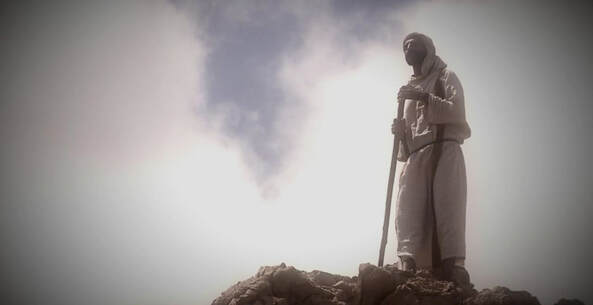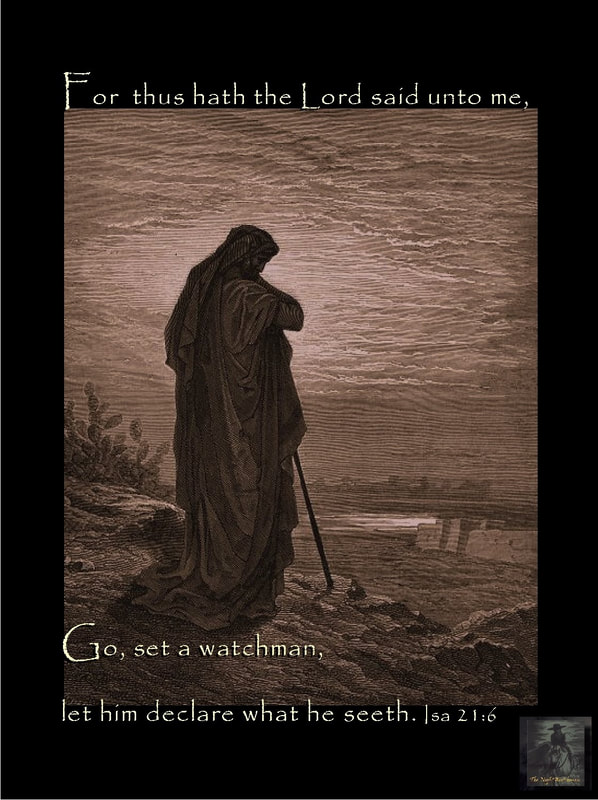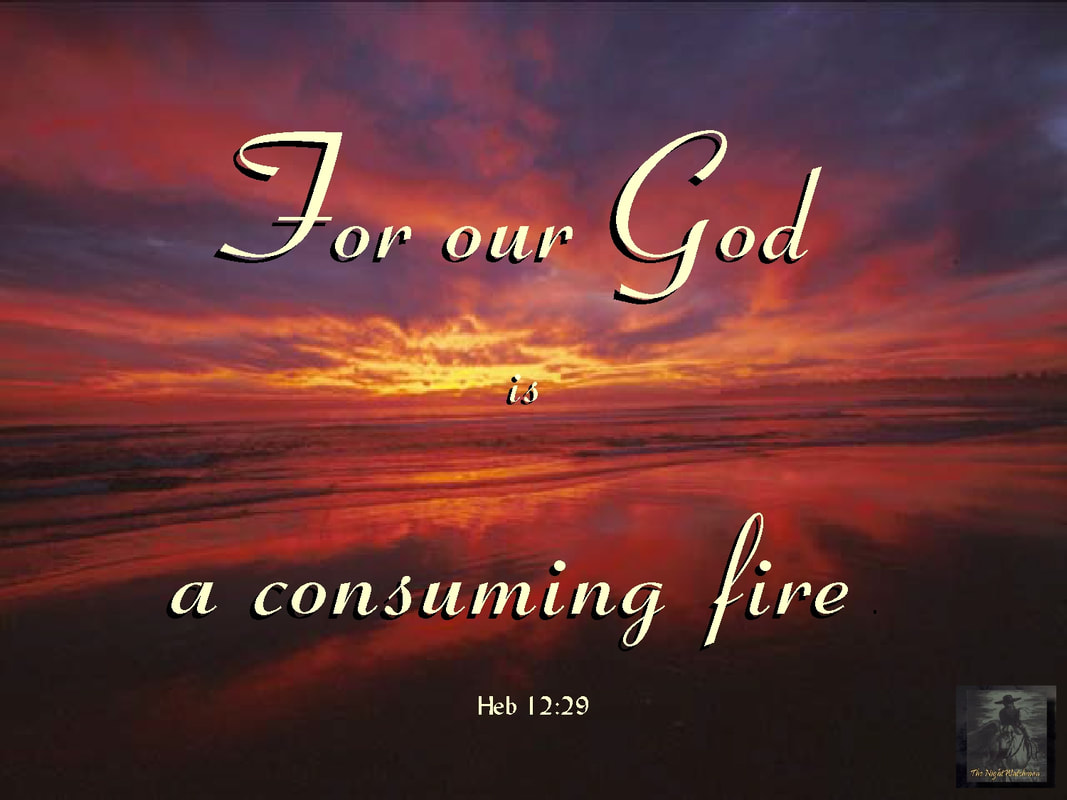|
And Abraham answered and said, Behold now, I have taken upon me to speak unto the Lord, which am but dust and ashes: Gen 18:27 Abraham’s intercession for Sodom THE FRIEND OF GOD HAS POWER WITH GOD. “Shall I hide from Abraham that thing which I do?” The Divine Friend recognizes the obligation of confidence. True friendship is frank, and cannot bear to hide its purposes. On the human side, we are here taught the great truth that God’s friends are intercessors, whose voice has a mysterious but most real power with God. If it be true that, in general terms, the righteous are shields and sources of blessing to the unholy, it is still more distinctly true that they have access to God’s secret place with petitions for others as well as for themselves. The desires which go up to God, like the vapours exhaled to heaven, fall in refreshing rain on spots far away from that whence they rose. In these days we need to keep fast hold of our belief in the efficacy of prayer for others and for ourselves. God knows Himself and the laws of His government a great deal better than anybody else does; and He has abundantly shown us in His Word, and by many experiences, that breath spent in intercession is not wasted. In these old times, when worship was mainly sacrificial, this wonderful instance of pure intercession meets us, an anticipation of later times. And from thence onwards there has never failed proof to those who will look for it, that God’s friends are true priests, and help their brethren by their prayers. Our voices should “rise like a fountain night and day” for men. But there is a secret distrust of the power and a flagrantly plain neglect of the duty of intercession nowadays, which needs sorely the lesson that God “remembered Abraham” and delivered Lot. Luther, in his rough, strong way, says: “If I have a Christian who prays to God for me, I will be of good courage, and be afraid of nothing. If I have one who prays against me, I had rather have the Grand Turk for my enemy.” (A. Maclaren, D. D.) THE TRUE CHARACTER OF THE BEST WORSHIPPERS “Dust and ashes.” The terms seem to indicate-- 1. Our origin and mortality. Formed of the dust; residents of the dust; travellers to the dust. 2. Our depravity. Dust and ashes. Ashes are only the refuse of what was once more valuable. Now man is fallen, debased, and worthless. III. IN WORSHIP GOD ALLOWS US TO SPEAK UNTO HIM. Now, we do this-- 1. In adoration and praise. 2. In confession of sin. 3. In supplication and prayer. (1) With reverential fear. “In Thy fear will I worship.” (2) With deep self-abasement. (3) With resignation to His divine will. (J. Burns, D. D.) The World’s Obligation to God’s Saints THE CERTAIN DESTRUCTION OF THE WICKED; "which some people say they cannot believe, because out of harmony with their notions of the character of God. God is determined on the destruction of the cities of the plain, and all their inhabitants; and He gives these reasons (Gen_18:20)—“The cry of Sodom and Gomorrah is great, and their sin is very grievous,” or heavy. Observe-- 1. The cry was very great. A cry of blood, like that of Abel’s from the ground, for vengeance against the murderer (Gen_4:10). Murder, no doubt, was rife in Sodom; and He who had demanded blood for blood, could not overlook it. A cry of proud defiance against God, as represented Eze_16:49-50; and that God knows too well what is due to Himself to disregard. A cry of oppression, injustice, and wrong. The cry of defrauded labourers, which the Apostle James says, “enters into the ears of the Lord of Sabaoth” (Jas_5:4). A cry of cupidity, drunkenness, and revelry, such as went up to Jehovah from those whom He had called to be His people, and to whom “He looked for judgment, but beheld oppression; for righteousness, but beheld a cry” (Isa_5:7). And shall we not add, a cry from the vexed spirit of righteous Lot—a cry of filial supplication mingling its music, so agreeable to the ears of a loving Father, with the hoarse discord of angry passions and self-inflicted woes? Doubtless that cry from Lot brought down the Omnipotent avenger; and the accumulated cry from the multitude “which no man could number,” of His blood-bought people, who have complained to Him of their treatment from a Satan-ruled world, in every generation since, shall at last bring Him down again, to teach the persecutors that they have persecuted not them but Him Act_9:4). 2. Their sin was very grievous, or heavy. Like a black cloud, gathering increased density from accumulated vapours of human wickedness until it becomes so charged with rain, thunder, lightning, and tempest, that it must at length empty itself upon the devoted earth over which it lowers. Thus sin cannot be suffered to press upon God’s creation for ever—sooner or later it shall be removed, and all who have their life in it must perish. 3. The signal destruction of Sodom and her kindred cities was resolved on. God is a Sovereign Judge and Ruler. To Him vengeance belongs. “He can create and He destroy.” “To Me,” says God, “belongeth vengeance and recompense” (Deu_32:35); and His people are taught to address Him in that character (see Psa_94:1); and shall we say that “God is unrighteous who taketh vengeance”? (Rom_3:5). The sinner, in fighting against God, is labouring for his own destruction." THE FORBEARANCE OF GOD TOWARDS THE WICKED, FOR THE SAKE OF THE RIGHTEOUS, Under this head we are called upon to consider-- "That God has a people whom He calls peculiarly His own, mingled among the mass of dead, ignorant, and ungodly human beings composing what is called the world; just as righteous Lot was placed in Sodom, in the city, but not of it, residing in the midst of its depraved inhabitants, yet not identified with their wicked ways or deeds of darkness, “but rather reproving them.” We have a perfect illustration of the external mingling, yet spiritual separation, that exists between Christ’s redeemed ones and the subjects of Satan’s rule in this world, in the parable of the tares and wheat, supplied by our Lord for the instruction and consolation of His people in their present state. And in referring to the value of intercessory prayer for our beloved country at such a time as this. Abraham pleaded for Lot. He remembered him when God announced to him the overthrow of Sodom, where Lot dwelt." (S. A. Walker, M. A.) The Tone of Abraham’s Intercession "The tone of Abraham’s intercession may teach us how familiar the intercourse with the heavenly Friend may be. The boldest words from a loving heart, jealous of God’s honour, are not irreverent in His eyes. This prayer is abrupt, almost rough. It sounds like remonstrance quite as much as prayer. Abraham appeals to God to take care of his name and honour, as if he had said, If Thou doest this, what will the world say of Thee, but that Thou art unmerciful? But the grand confidence in God’s character, the eager desire that it should be vindicated before the world, the dread that the least film should veil the silvery whiteness or the golden lustre of His name, the sensitiveness for His honour,—these are the effects of communion with Him; and for these God accepts the bold prayer, as truer reverence than is found in many more guarded and lowly sounding words. Many conventional proprieties of worship may be broken just because the worship is real. “The frequent sputter shows that the soul’s depths boil in earnest.” We may learn, too, that the most loving familiarity never forgets the fathomless gulf between God and it. Abraham does not forget that he is “dust and ashes”; he knows that he is venturing much in speaking to God. His pertinacious prayers have a recurring burden of lowly recognition of his place. Twice he heralds them with “I have taken upon me to speak unto the Lord”; twice with “Oh let not the Lord be angry.” Perfect love casts out fear and deepens reverence. We may come with free hearts, from which every weight of trembling and every cloud of doubt has been lifted. But the less the dread, the lower we shall bow before the loftiness which we love. We do not pray aright until we tell God everything. The boldness which we as Christians ought to have, means literally a frank speaking out of all that is in our hearts. Such “boldness and access with confidence” will often make short work of so-called seemly reverence, but it will never transgress by so much as a hair’s-breadth the limits of lowly, trustful love." (A. Maclaren, D. D.)
Comments are closed.
|
Welcome
In this page there will be devotions/poems music and inspirational material 
The Lord Will Pour Out His Spirit
And it shall come to pass afterward, that I will pour out my spirit upon all flesh; and your sons and your daughters shall prophesy, your old men shall dream dreams, your young men shall see visions:
And also upon the servants and upon the handmaids in those days will I pour out my spirit. And I will shew wonders in the heavens and in the earth, blood, and fire, and pillars of smoke. The sun shall be turned into darkness, and the moon into blood, before the great and the terrible day of the LORD come. And it shall come to pass, that whosoever shall call on the name of the LORD shall be delivered: for in mount Zion and in Jerusalem shall be deliverance, as the LORD hath said, and in the remnant whom the LORD shall call. Joel 2:28-32 But this is that which was spoken by the
prophet Joel; And it shall come to pass in the last days, saith God, I will pour out of my Spirit upon all flesh: and your sons and your daughters shall prophesy, and your young men shall see visions, and your old men shall dream dreams: And on my servants and on my handmaidens I will pour out in those days of my Spirit; and they shall prophesy: Act 2:16-18 Resources
Madame Guyon - A Short and Easy Method of Prayer / Christian Audio Book (1 / 2) https://youtu.be/eihZWpAk7y4?si=PQ-_J3Y6i8u-N2Ac Union With God By Jeanne Guyon Chapter 1 Of 7 https://youtu.be/d5AfKS2dFLg?si=VtWAeEurkAddTDpL The Practice of the Presence of God - audiobook Brother LAWRENCE (1614 - 1691)- https://youtu.be/rRAs_BK1NR8?si=hGAL4C829aH7 DKMn Gander Story Poems
https://www.gander poems.org/ Archives
July 2024
|
Proudly powered by Weebly






